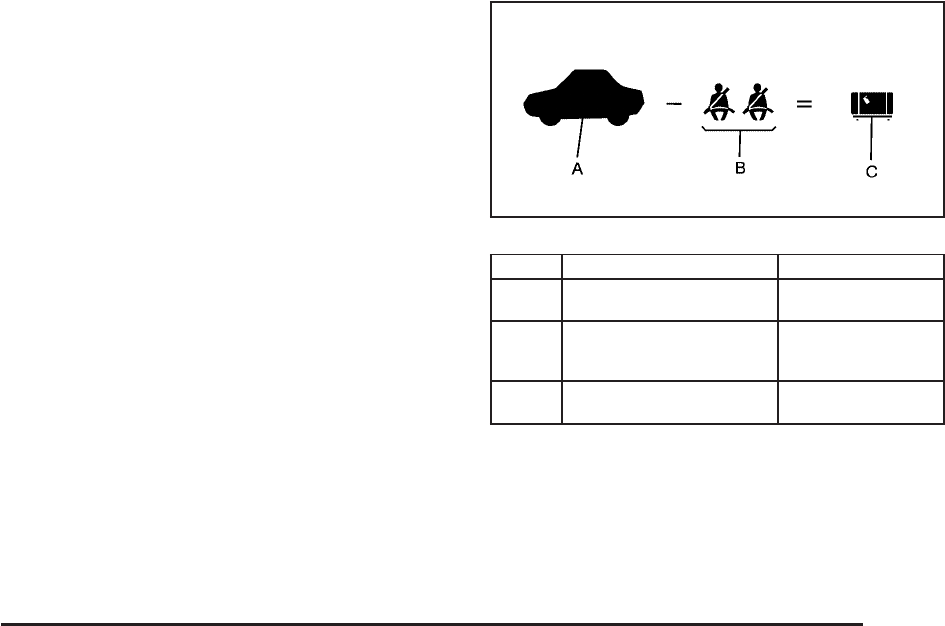
Steps for Determining Correct Load Limit
1. Locate the statement “The combined weight
of occupants and cargo should never exceed
XXX kg or XXX lbs” on your vehicle’s placard.
2. Determine the combined weight of the driver and
passengers that will be riding in your vehicle.
3. Subtract the combined weight of the driver and
passengers from XXX kg or XXX lbs.
4. The resulting figure equals the available amount of
cargo and luggage load capacity. For example, if
the “XXX” amount equals 1400 lbs and there will be
five 150 lb passengers in your vehicle, the amount
of available cargo and luggage load capacity is
650 lbs (1400 − 750 (5 x 150) = 650 lbs).
5. Determine the combined weight of luggage and
cargo being loaded on the vehicle. That weight
may not safely exceed the available cargo
and luggage load capacity calculated in Step 4.
6. If your vehicle will be towing a trailer, the load from
your trailer will be transferred to your vehicle.
Consult this manual to determine how this reduces
the available cargo and luggage load capacity of
your vehicle.
If your vehicle can tow a trailer, see “Towing a
Trailer” for important information on towing a trailer,
towing safety rules, and trailering tips.
Item Description Total
A
Vehicle Capacity Weight
for Example 1 =
1,000 lbs (453 kg)
B
Subtract Occupant
Weight 150 lbs
(68 kg) × 2 =
300 lbs (136 kg)
C
Available Occupant and
Cargo Weight =
700 lbs (317 kg)
Example 1
4-33


















